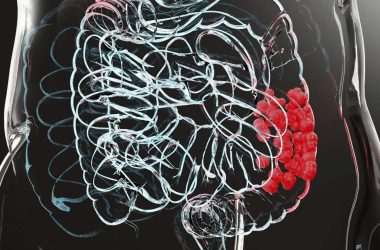Understanding Crohn’s Disease and Inflammatory Bowel Disease (IBD)
Crohn’s disease and inflammatory bowel disease (IBD) are conditions that involve inflammation in the digestive system. These conditions affect approximately 1% of adults in the UK and the US, and their root causes are still not fully understood.
The Role of Immune Cells in Controlling Crohn’s Disease
Specialized immune cells in the gut, specifically gamma delta T-cells, may play a crucial role in controlling the progression of Crohn’s disease. These immune cells are found in lower numbers in individuals with IBD, particularly in a subset known as V-gamma-4 (Vg4) cells.
Research Findings on Vg4 Cells and Crohn’s Disease
A study conducted by researchers at the Francis Crick Institute in London involved analyzing gut lining samples from 150 individuals, including those with IBD. The study found that people with Crohn’s disease who had fewer Vg4 cells in their gut also tended to have more severe disease. Furthermore, individuals in remission from Crohn’s disease who had Vg4 cells similar to those found in healthy guts were less likely to relapse within the next five years.
The Potential of Vg4 Cells as Biomarkers
Although the reasons behind the depletion of Vg4 cells in individuals with IBD remain unclear, these cells could potentially serve as biomarkers for diagnosing specific types of IBD. Currently, doctors lack clear biomarkers to determine the most effective treatment for patients. By understanding the presence and behavior of Vg4 cells, doctors could better predict the likelihood of relapse in individuals with IBD.
Implications for Treatment and Future Research
The findings of this study highlight the importance of immune cells in the gut and their potential role in protecting against Crohn’s disease. Further research is necessary to fully understand the mechanisms behind the depletion of Vg4 cells and to explore potential therapeutic interventions for IBD.
Summary
Specialized immune cells in the gut, known as V-gamma-4 (Vg4) cells, appear to play a crucial role in controlling Crohn’s disease. Individuals with Crohn’s disease who have lower numbers of Vg4 cells in their gut tend to experience more severe symptoms. However, individuals in remission with Vg4 cells resembling those found in healthy guts have a lower risk of relapse. These cells could also serve as biomarkers for diagnosing specific types of IBD and determining the likelihood of relapse.








